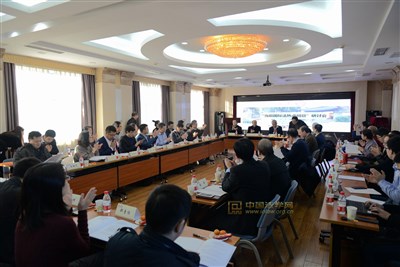The Seminar on the Current Hot Issues in International Law was held in Beijing on January 20, 2019. It was sponsored by CASS Law Institute and CASS Institute of International Law and attended by over 50 experts and scholars from various universities, research institutions, law firms and government organs, including Peking University, Tsinghua University, Renmin University of China, China University of Political Science and Law, University of International Business and Economics, Beijing Normal University, Wuhan University, Yingke Law Firm, CASS Institute of World Economics and Politics, CASS Institute of Political Science, CASS Law Institute and CASS Institute of International Law.

At the opening ceremony, presided over by Professor Chen Guoping, Secretary of Joint Party Committee of CASS Law Institute and CASS Institute of International Law, a welcome speech was given by Professor Chen Su, Director of CASS Law Institute, and a keynote speech entitled “Legal Issues in the China-US Trade Friction” was given by Professor Yu Yongding, Director of CASS Institute of World Economics and Politics. The seminar was divided into four units, in which the participants gave speeches and carried out discussions on various hot issues of international law around the following topics: China-US trade friction, extraterritorial jurisdiction/long-arm jurisdiction, foreigners’ freedom of travel, and new trend of development of international human rights law. At the closing ceremony, presided over by Professor Liao Fan, Head of Research coordination and International Cooperation of CASS Institute of International Law, Professor Mo Jihong, Director of CASS Institute of International Law gave concluding remarks, in which he pointed out that constitutional law and international law will be the two emphases of the construction of the rule of law in China for a long period of time and urged Chinese international law scholars to follow closely the major issues that have caused concern of the CPC Central Committee and put forward feasible countermeasures.


